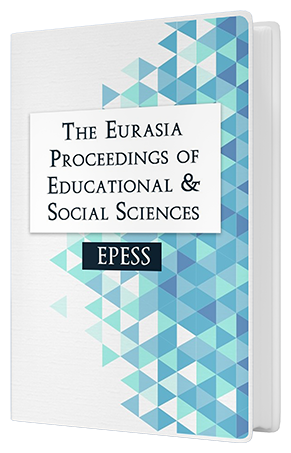Building Sustainable Peace in the Chittagong Hill Tracts of Bangladesh: The role of Inclusive Development in Addressing Armed Group Rivalry
DOI:
https://doi.org/10.55549/epess.1351978Keywords:
Armed conflict, Inclusive development, Peacebuilding, Social cohesion, Sustainable peaceAbstract
This study investigates the effect of inclusive development policies and initiatives in reducing armed group rivalry and fostering long-term peace in Bangladesh's Chittagong Hill Tracts (CHT) region. The study adopts a qualitative research methodology, utilizing data from key stakeholder interviews, focus group discussions, and document analysis. According to the study's findings, inclusive development policies and programs have the ability to address the underlying reasons of armed group rivalry, boost socioeconomic growth, and generate more social cohesion and reconciliation in the region. Inclusive development techniques that prioritize local communities' needs and ambitions can foster trust and legitimacy among them, increase their feeling of ownership and participation in development processes, and provide an enabling climate for long-term peace. The study also identifies barriers to implementing inclusive development policies and initiatives in the CHT region, such as a lack of political will and commitment, insufficient fund, and low ability and coordination among government agencies and civil society organizations. More political will, coordination, capacity-building, and community participation are required to implement successful development policies and programs that address the core causes of conflict and generate long-term peace in the CHT region.Downloads
Published
Issue
Section
License
Copyright (c) 2023 The Eurasia Proceedings of Educational and Social Sciences

This work is licensed under a Creative Commons Attribution-NonCommercial-ShareAlike 4.0 International License.
The articles may be used for research, teaching, and private study purposes. Any substantial or systematic reproduction, redistribution, reselling, loan, sub-licensing, systematic supply, or distribution in any form to anyone is expressly forbidden. Authors alone are responsible for the contents of their articles. The journal owns the copyright of the articles. The publisher shall not be liable for any loss, actions, claims, proceedings, demand, or costs or damages whatsoever or howsoever caused arising directly or indirectly in connection with or arising out of the use of the research material. All authors are requested to disclose any actual or potential conflict of interest including any financial, personal or other relationships with other people or organizations regarding the submitted work.




